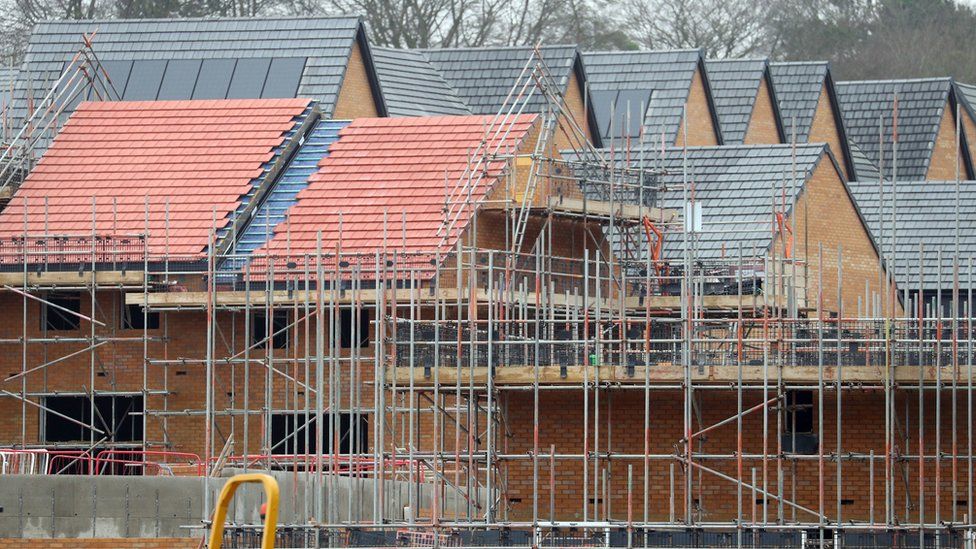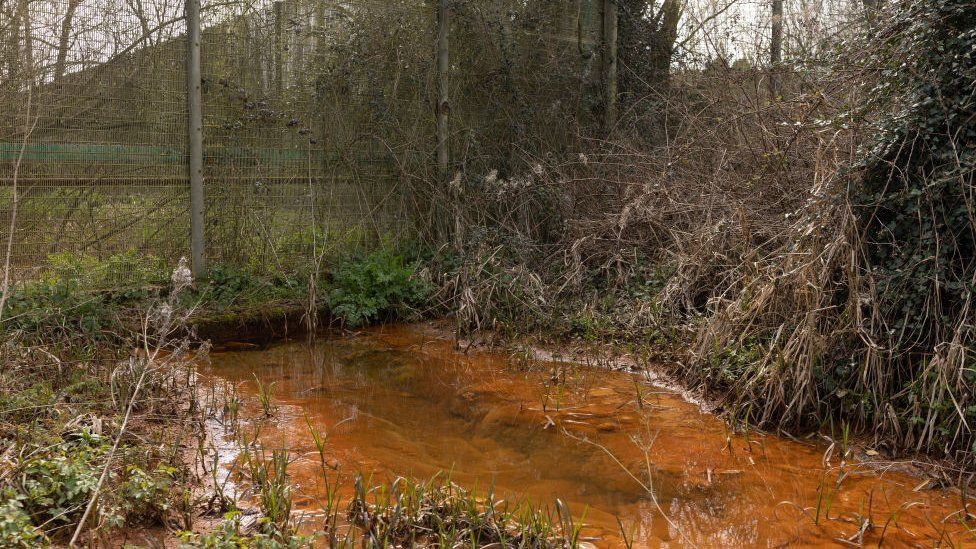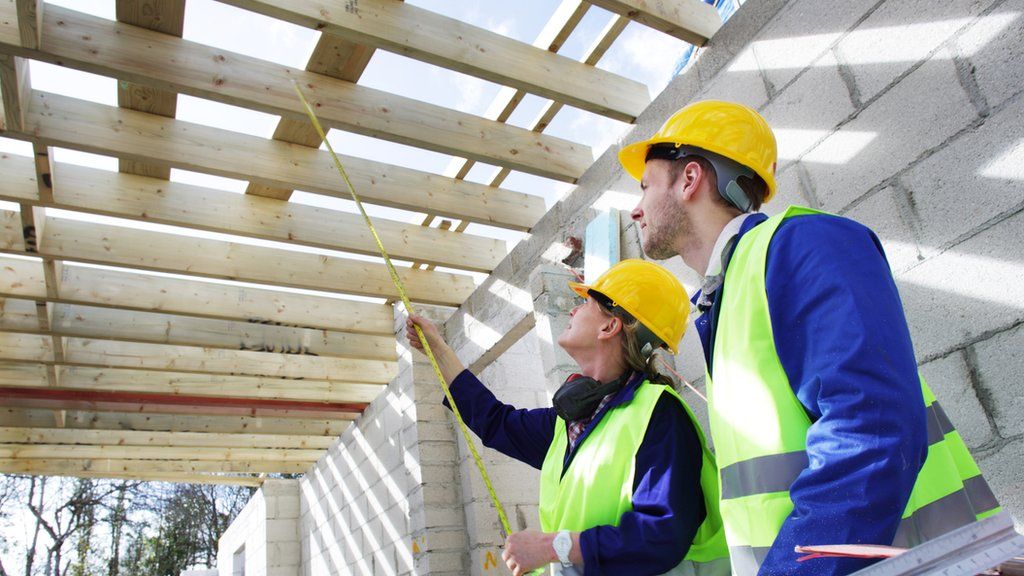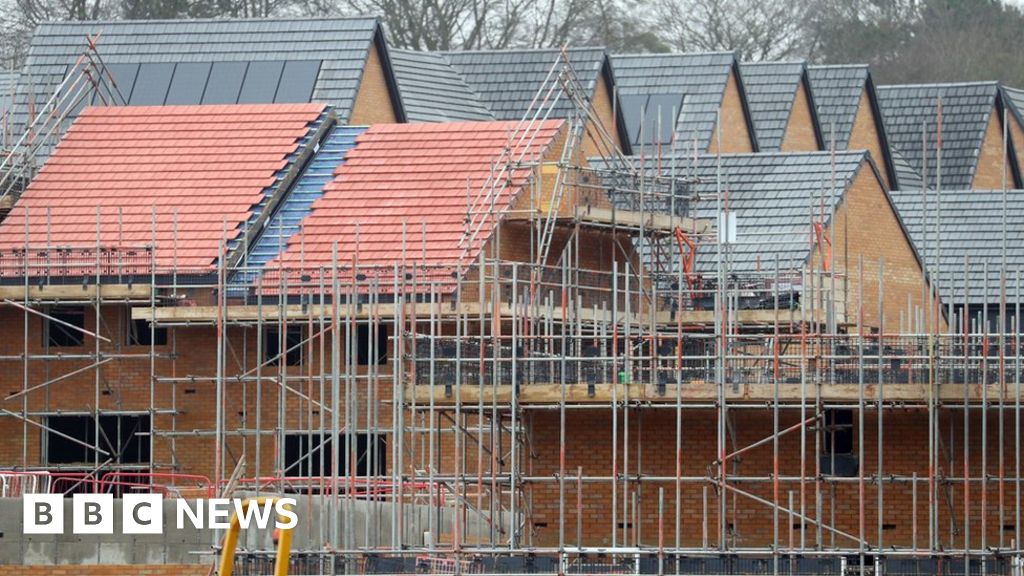
Pollution rules are a major obstacle to the government’s aim of 300,000 new homes a year, a minister has said.
Wastewater and sewage from new homes and construction sites raise levels of nutrients like nitrates and phosphates, which harm water quality and wildlife.
Baroness Scott of Bybrook said a duty to lessen the impact was placing a “significant burden” on housebuilders.
Housing development had been stalled in 27 areas covering 14% of England, she told the House of Lords.
The Home Builders Federation (HBF) says the rules are disproportionate and will mean up to 41,000 fewer homes a year.
It argues the root causes of the nutrient problem are water companies’ dumping of raw sewage into rivers and wastewater from farms.
It also takes issue with a working assumption by government environmental agency Natural England that each new home will increase the population by an average of 2.4 persons, insisting most new housing caters for the existing population in the local area.
Natural England lays down regulations for local planning authorities to ensure housebuilding achieves “nutrient neutrality”.
This means that developments do not result in a net increase in nutrients which can damage habitats, estuaries and wildlife.
To meet this condition, Natural England says extra nutrients created by additional wastewater need to be mitigated.
In total, 74 planning authorities have been advised that, where protected sites are “in unfavourable condition due to excess nutrients”, development should go ahead only if additional pollution is not caused.
In these areas, the Local Government Association says the rules have had a “significant negative impact” on the number of homes granted planning permission.
‘Major barrier’
In a written answer in the Lords, Baroness Scott, a junior minister in the Department for Levelling Up, Housing and Communities (DLUHC), said the government recognised the need to protect freshwater habitats and rivers, and was tackling “underlying pollution”.

But nutrient neutrality had placed a significant burden on housebuilders “despite the limited impact extra wastewater from residents in new developments has on waterbodies”, she added.
Natural England’s advice to 74 local planning authorities had “effectively stalled housing development in these areas given the lack of available mitigation schemes, creating a major barrier to the government’s ambition of delivering 300,000 homes per year by the mid-2020s”, she said.
Baroness Scott pointed to funding provided by DLUHC for high-quality bids submitted by local authorities and for a nutrient mitigation scheme, already operating in the Tees catchment, which includes the Tees, Skerne and the Lees rivers.
Under the scheme, developers can work with local landowners to help create offsetting habitat – particularly wetlands and woodlands – in return for nutrient credits which can be used in planning applications.
Ministers had also placed an obligation on water companies to upgrade wastewater treatment works in affected catchments by 2030, stopping pollution at source, Baroness Scott added.
Targets
HBF says ineffective action to tackle the pollution caused by water companies, and by agricultural fertilisers and animal slurry, has left more than 120,000 new homes on hold.
It estimates that all housing stock is responsible for less than 5% of excess nutrients in England, and says modern new builds are more water-efficient than older homes.
Natural England has been approached for comment.
In their 2019 manifesto, the Conservatives promised that 300,000 homes a year would be built by the middle of the decade.
But, in December, when Tory rebels threatened to back a move to ban mandatory targets for local authorities, the government diluted the pledge.
DLUHC said: “Housing targets remain, but are a starting point, with new flexibilities to reflect local circumstances.”
Labour has said it would reintroduce mandatory targets.
In 2019-20, 242,700 new homes were supplied in England, but this fell to 216,490 in 2020-21, partly because of the pandemic.
Related Topics
-
-
24 October 2022

-
-
-
5 April 2022

-
-
-
7 December 2022

-
